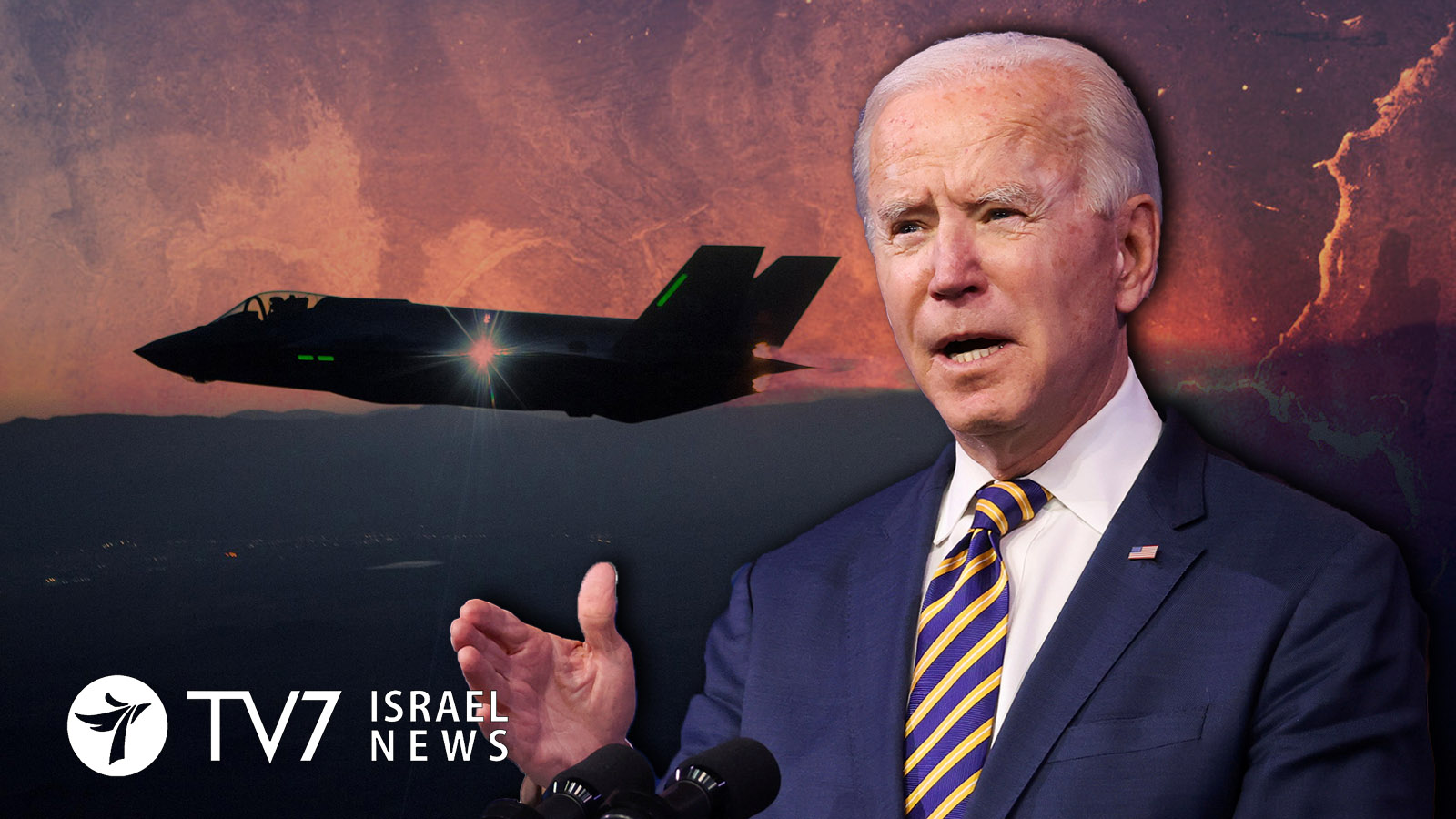United States President Joe Biden authorized his first known military action by ordering air strikes on Iran-backed militia in eastern Syria at dawn.
The strikes appeared to be limited in scope in a bid to avoid risk of escalation in the region, as part of a calibrated response to a series of recent rocket attacks against US coalition forces in Iraq.
A rocket barrage on 15 February pounded the US military base in Iraq housed at Erbil International Airport in the Kurdish-run region, killing one non-American contractor and injuring a number of American contractors and a US service member. At least one other contractor was injured days later when another salvo targeted a base hosting US forces north of Baghdad. Rockets were also fired this week on Monday on Baghdad’s Green Zone, where the US Embassy and other diplomatic missions are located.
US Defense Secretary Gen. Lloyd Austin expressed a “level of confidence” that the retaliatory strike successfully targeted the same Shi’ite militia responsible for those attacks, even though until now Washington had held back from attributing blame.
Pentagon Spokesman John Kirby went even further, specifying in a statement that the strikes destroyed multiple facilities at a border control point used by a number of Iranian-backed militant groups, including Kata’ib Hezbollah (KH) and Kata’ib Sayyid al-Shuhada (KSS).
These Iranian proxies and others operate along the porous Syria-Iraq border, with many filling a vacuum left in the wake of the defeat of the Islamic State (ISIS). Several Western and Iraqi officials view their attacks as a means for Iran to harass US forces operating in the region without being held accountable.
“President Biden will act to protect American and Coalition personnel. At the same time, we have acted in a deliberate manner that aims to de-escalate the overall situation in both eastern Syria and Iraq,” stated Kirby.
According to one US official, “up to a handful” of militants were killed in the US retaliation.
There was no immediate official comment from Syria on the strikes, but state-owned Ekhbariya TV cited its correspondent in Deir al-Zour as reporting that several targets were hit near the border with Iraq.
The United States has carried out high-profile strikes against KH in both Iraq and Syria since late 2019, in response to sometimes deadly attacks on US-led troops. Escalating tensions between the sides culminated in the killing of Iran’s Quds Force Commander Qassem Soleimani in a US strike on Baghdad during the administration of former US President Donald Trump, to which Tehran retaliated by firing ballistic missiles at US forces in Iraq last year.
A US official speaking on condition of anonymity said Biden’s decision to order the strikes was designed to punish the militias without the situation spiraling into a wider conflict, stressing that the President chose one of the most limited responses from a range of options with which he had been presented.
Representative Michael McCaul, the top Republican on the House Foreign Affairs Committee, said the strikes were the right move. “Responses like this are a necessary deterrent and remind Iran, its proxies, and our adversaries around the world that attacks on US interests will not be tolerated,” he said.
It is not clear how, or whether, the strike might affect Washington’s ongoing efforts to coax Tehran back into a negotiation about both sides resuming compliance with the 2015 Joint Comprehensive Plan of Action (JCPOA) nuclear agreement. Iran has been openly breaching atomic development restrictions since Trump re-imposed sanctions after withdrawing the US from the deal in 2018.
Suzanne Maloney, of the Brookings Institution think-tank, wrote on Twitter that the strikes were a “good move,” that demonstrate Biden’s ability to “walk and chew gum at the same time” by simultaneously engaging with Iran on renegotiating the JCPOA while pushing back against the militias it backs.
By ordering the strike, Biden also sent a strong signal to domestic, regional and international audiences – and most particularly the Ayatollah Regime – that his administration has no intention of adopting a “soft” policy with regard to the Islamic Republic.
In related developments, Biden held his first conversation since taking office with Saudi King Salman bin Abdulaziz last night.
The White House said in a statement that the leaders reviewed “destabilizing” Iranian regional activities, Washington’s “commitment to defend” Riyadh “against such threats” and an assurance from Biden not to allow Iran “to possess nuclear weapons.”
